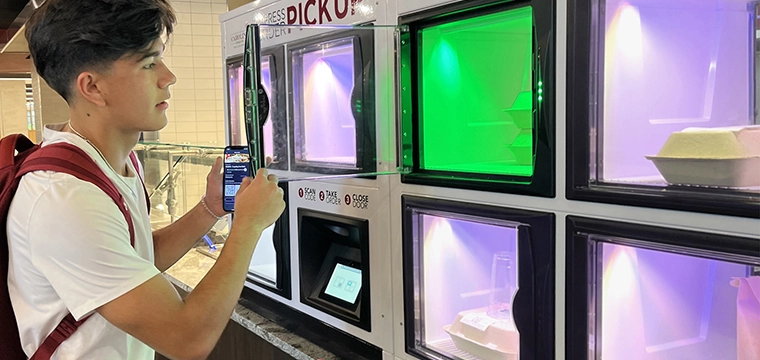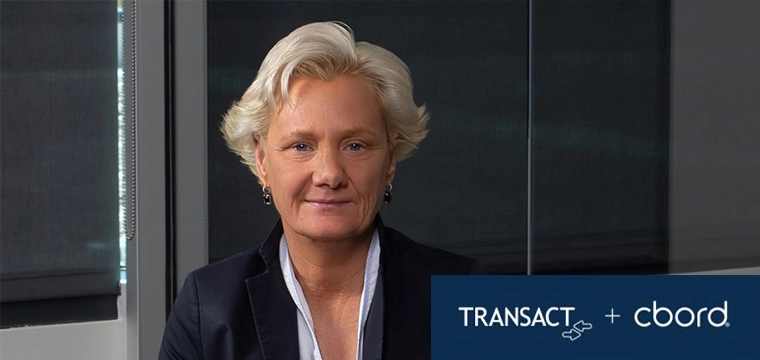 By Andy Williams, Contributing Editor
By Andy Williams, Contributing Editor
A time tested business adage suggests that one key to success is to give customers a choice. That is one of the driving principles behind Ireland-based SmartCentric’s latest move, adding support for the iCLASS contactless smart card to its campus card system through one of the best known contactless solutions providers, HID Global.
SmartCentric recently announced the addition of iCLASS to SmartCentric’s SmartCity platform with expected availability later this year.
SmartCentric Technologies International focuses on secure payments and transactions and multi-application smart card systems. Its flagship product, SmartCity, was developed in the early 1990s and is a multi-application smart card based system with multiple uses, including stored value, loyalty, gift cards, logical access, physical access, biometrics, car parking and ticketing.
SmartCity has been used in more than 90 sites worldwide with five million cards issued to colleges (about 10 in the U.S.), government offices, military establishments, banks, cities, towns, shopping areas, and stadiums.
“One of the prime reasons we chose iCLASS is that it has a good reputation and good brand recognition,” said SmartCentric CEO Kieran Timmins.
“That means we can offer yet another choice within SmartCity. One of our founding philosophies is to give customers a choice. Previously we only had contact cards, but last year we added contactless support with NXP’s DESFire. Now we are expanding with iCLASS,” said Mr. Timmins.
“The incorporation of iCLASS into SmartCity will provide our customers with a real choice of advanced RFID card platforms and new opportunities for expanded use of SmartCity’s family of smart card solutions,” he added.
SmartCity, an HID iCLASS Development Partner, has been working with HID Global to ensure that the iCLASS implementation supports a campus’ needs for a multi-application smart card.
“It’s hard to say when schools will switch over to contactless technologies but most will over time,” said Mr. Timmins. “While contactless hasn’t taken off in U.S. campus markets as yet, most schools are talking about contactless.”
He added: “To date, most schools’ exposure to any type of contactless technologies have been with the prox card used solely for physical access. iCLASS provides a natural migration from prox to a fully functional multi-application smart card while protecting any investment in prox readers.”
He said SmartCity will be migrating its technology to enable a full suite of SmartCity applications, such as parking, logical and physical access, vending, pay for print, meal plans, web revalue, ticketing and off-campus use, where needed.
“Essentially our proposition is to move everything you can get on a contact chip today to contactless technology over a period of time with iCLASS,” said Mr. Timmins. He predicts the price range for iCLASS will be comparable to that of other contactless cards.
To convert schools to an iCLASS environment will require some software upgrades. “They’ll also have to buy new readers for vending, laundry, etc.,” he said.
One way to convert a school is to go with what he calls the “big bang approach and card everyone, that is, issue everyone with a brand new card,” he said.
Another way to migrate to the new contactless card would be to issue the new cards just to all incoming freshmen. In four years, the migration would be mostly complete.
For schools currently using SmartCity, “we can also provide them a hybrid reader that will support both contact and contactless cards allowing schools to gradually replace hardware over the period of the migration. With the hybrid readers, we’re trying to give the colleges options, to work within their budgetary constraints so they don’t have to card everyone.”
Mr. Timmins could not say how many schools might convert to iCLASS. “We’re talking to a couple of schools who have SmartCity now.”
He sees iCLASS support as simply another menu item from which colleges can choose. “We can support a variety of readers depending on the applications. Our strategy going forward is about supporting every application. If they (colleges) want DESFire, we’ll get it for them,” he added. “We also can work with companies like ViVOtech and On Track Innovations and their existing readers. From my point of view, we’re simply reacting to customer requirements in the U.S.”




